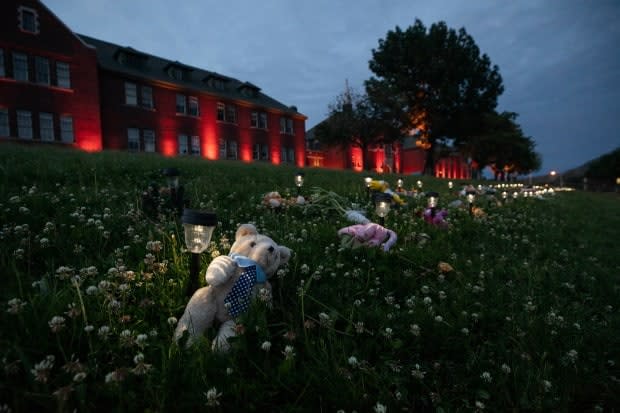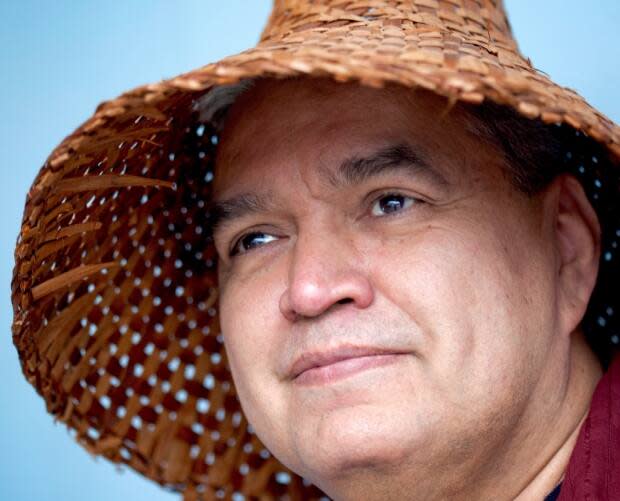Virtual vocal arts project pays tribute to remains discovered at residential schools

Two musical artists are joining together on a vocal arts virtual video project that pays tribute to the recent discovery of the unmarked graves of hundreds of children at residential schools across the country.
Lil'wat composer Russell Wallace and Muslim Canadian artist Hussein Janmohamed plan to compile clips of people singing into a tribute video.
"We thought about ways that we can address what's going on or respond to it. And the idea of one note came about," Wallace said on CBC's All Points West.
Wallace and Janmohamed aim to get 215 people to sing a sustained note at 215 hertz, in honour of the remains of 215 children reportedly found on the site of a former residential school in Kamloops.
Giving voice to those no longer heard
"Getting people to sing, that to me is really impactful, and also giving voice to those voices that are no longer heard," said Wallace.
He said Hussein came to him with the idea to start the project after he was affected by the news from Kamloops and the recent alleged terrorist attack on a Muslim family in London, Ontario.

The pair saw it as an opportunity to bring together different communities from all over Canada in unity, mourning and healing.
"We're hoping that this will be a moment of upholding space, almost mourning," Hussein said.
"But also a hopeful dream for something that we can imagine where we can all function and coexist together in a way that brings peace and solace and comfort."
Wallace added that it's unfortunate they couldn't come together in person because of the pandemic.

"It brings up feelings. You know, we were banned from singing our songs [as] Indigenous people," he said.
Hussein and Wallace have sent a callout to the community to submit videos of themselves singing the note before June 26. They say their goal is to get as many people as possible so they can compile all the voices to sing together as one.
The final product will be released virtually on Canada Day to encourage reflection.
Support is available for anyone affected by their experience at residential schools, and those who are triggered by the latest reports.
A national Indian Residential School Crisis Line has been set up to provide support for survivors and those affected. People can access emotional and crisis referral services by calling the 24-hour national crisis line: 1-866-925-4419. A Saskatchewan-based line is now available by calling 306-522-7494.

 Yahoo Finance
Yahoo Finance 